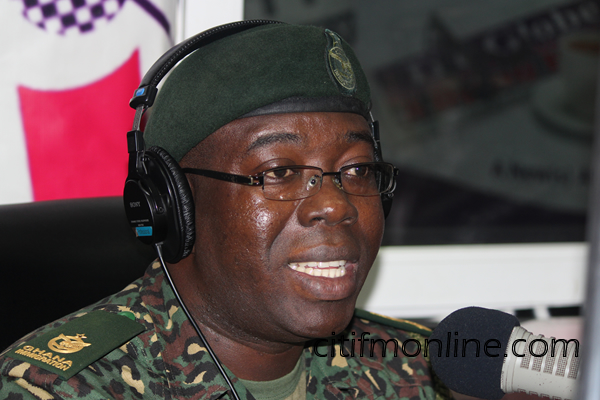The Ghana Immigration Service (GIS) has disclosed that its personnel do not have the requisite skills to identify persons with the deadly Ebola diseases at the various entry points into Ghana.
“A significant number of our personnel on the ground are not well equipped in terms of the basic protective gear they need to even protect themselves, let alone be in the position to hold anybody suspected of having the virus,” said the Head of Public Affairs at the GIS, Francis Palmdetti.
He told Citi News, a comprehensive programme involving the Ghana Immigration Service officials will help prevent the disease from entering Ghana through the borders.
He complained that structures at the various entry points into Ghana do not have the capacity to contain any individual who is suspected to have the virus.
“The closest to any health facility could be about two hours drive from the border post,” he complained.
Mr. Palmdetti mentioned that Ghana has “gotten to the stage where we need to step up in all areas in terms of public education, creating the zones where quarantine activities could take place.”
Meanwhile, officials of the Health Ministry and the Ghana Health Service (GHS) will on Tuesday announce the state of preparedness of the country towards fighting the deadly Ebola disease which has claimed hundreds of lives in some West African countries.
The announcement follows reports of an outbreak in Liberia, Serra Leone and Guinea and a reported incident in Nigeria.
The Ghana Medical Association (GMA) has passed a vote of no confidence in the Health Ministry and the Ghana Health Service to effectively battle the Ebola virus.
But the Vice President, Kwesi Amissah-Arthur on Monday during the Eid celebrations stated that the country’s health experts have introduced enough measures to contain the disease if it breaks out in Ghana.
He appealed to Ghanaians to take personal responsibility for their health saying, “we need to protect ourselves from falling victim to the outbreak of the Ebola that has taken the lives of hundreds of residents in ECOWAS countries.”
According to him, Ghanaian citizens have a duty to learn about the virus and how to prevent being exposed to it.
By: Efua Idan Osam/citifmonline.com/Ghana
Follow @osamidan


